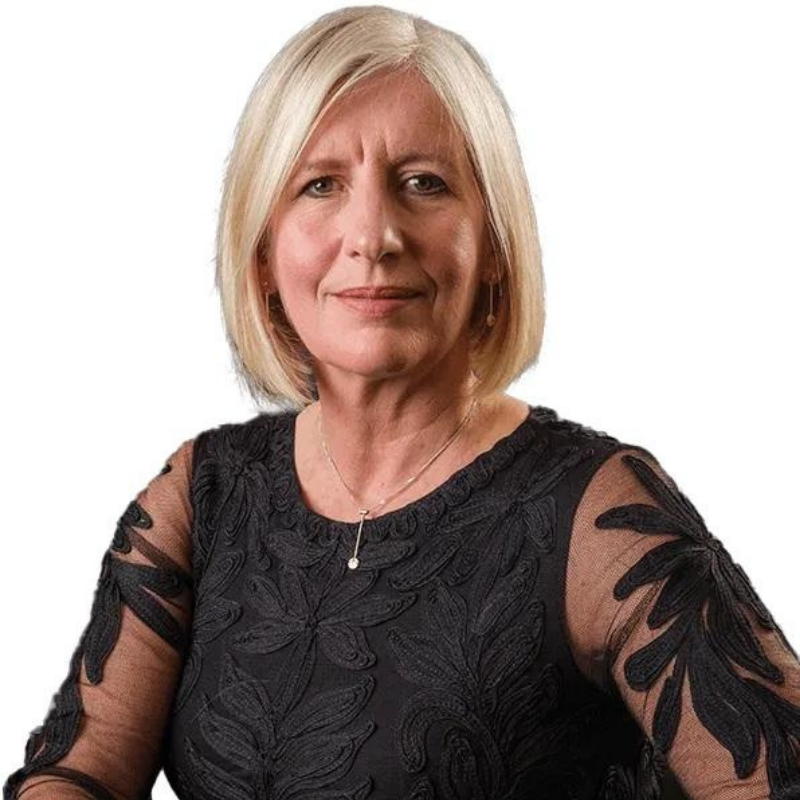Freedom of Information in Scotland has become both an effective tool for public accountability in Scotland and a growing demand on the resources of our public sector bodies. However, questions over compliance, scope, operation and cost have increasingly come to the fore. What do Scottish bodies covered by FOI – and others that may be pulled into its reach – need to know about where we stand and what may be coming next?
Scotland's Information Commissioner believes that updating Scotland's Freedom of Information legislation should be a priority for government. He has stated that this is "particularly important following the COVID pandemic and all the information that's coming out from that." Following his call for change in December 2023, the Commissioner's office has since launched an intervention into Scottish ministers’ practices in use of informal communications. Emerging evidence during COVID Inquiry hearings in relation to WhatsApp messages have provoked practice concerns over the use and retention of informal messaging.
In the AI, digital and data age where information is perhaps the most important currency, what changes may be needed to Scotland's FOI legislation to stay abreast of fast changing practices both within our public bodies and across society? How do organisations and individuals working professionally in the Freedom of Information space need to think afresh about best practice, skills and organisational cutlure on information? What do they need to consider in respect of what is covered by the requirements of the law?
The Scottish Government proposes to address FOI matters without legislation. Katy Clark MSP proposes a Private Member's Bill which would extend the scope of the law to cover a range of emergent concerns. It would also include a much wider range of organisations not in the public sector but delivering services on behalf of the state. Even if neither proceeds, the ways in which people in public bodies and public positions discuss and develop their decision making seems likely to drive forward changes to practice regardless.
This conference examines the journey of Freedom of Information in Scotland since its inception in 2002, current pressures and challenges for compliance, the themes and practices in need of reform, the impact of current demands and possible changes upon the role of Freedom of Information practitioners and other relevant staff in the field. It discusses the broader pressures and drivers of change for Freedom of Information scope and compliance requirements. It will focus on three themes:
Topics to be discussed
Who should attend
This conference is intended for all those working in the Freedom of Information, data protection/management and information governance fields and is intended for both organisations and individuals. It is relevant to all organisations subject to Freedom of Information law and is for FOI officers and compliance practitioners, data professionals, data protection officers and also for those in executive and non-executive roles with a responsibilty for legal compliance, reputation management, corporate accountability or strategic leadership.
Examples of the types of individuals and organisations already booked to attend include Service Managers, Information Governance, Compliance and Regulatory Managers, Legal Advisers and Solicitors, Policy and Public Affairs Managers, Case Investigators, Data Protection Officers and Case Investigators. These come from across local government, non-departmental public bodies, housing associations, further and higher education, the third sector and industry bodies.

Former Scottish Public Services Ombudsman and Scottish Information Commissioner

Member for West Scotland - Scottish Parliament, Spokesperson for Community Safety - Scottish Labour Party and proposer - Freedom of Information Reform (Scotland) Bill

Director, Campaign for Freedom of Information in Scotland and Public Policy and Human Rights Consultant
Ewart Communications

Head of Improving Public Engagement
Scottish Government

Managing Director
Ipsos Scotland

Scottish Information Commissioner

Information Governance Solicitor
The General Teaching Council for Scotland

Deputy Head of Policy and Information
Office of the Scottish Information Commissioner

Head of Policy and Information
Office of the Scottish Information Commissioner

Senior Lecturer
University of Otago
09:25 Chair's opening remarks
Dr Sean Whitaker, Lecturer in Law, Dundee Law School and Executive Director of the Centre for Freedom of Information, University of Dundee
dundeeuni
Session 1: Where Freedom of Information stands now, where it is going next
09:30 Keynote speaker
David Hamilton, Scottish Information Commissioner
FOIScotland DvdHmltn
09:45 Question and answer session
09:55 Access to Information Rights in Scotland – Strengthening FOI
Lorna Gibbs, Head of Improving Public Engagement, Scottish Government
scotgov
10:10 The FOI Reform (Scotland) Bill – what it tells us about what is needed
Katy Clark MSP, Member for West Scotland - Scottish Parliament, Spokesperson for Community Safety - Scottish Labour Party and proposer - Freedom of Information Reform (Scotland) Bill
KatySClark
10:25 Question and answer session
10:40 Comfort break
Session 2: Freedom of Information – know the law, deliver best practice and foster the culture and skills for compliance
10:55 Best practice and improving practice
Paul Mutch, Deputy Head of Policy and Information, Office of the Scottish Information Commissioner
FOIScotland
11:10 Compliance – what the law says and what it means for you
Fiona Killen, Lawyer, Specialising in Information Law, Public Law and Regulatory Procedures
11:25 Culture and skills for an FOI positive organisation
Claire Stephen, Head of Policy and Information, Office of the Scottish Information Commissioner
FOIScotland
11:40 Question and answer session
11:55 Comfort break
Session 3: Reflections on Freedom of Information in the AI and disinformation age
12:10 Freedom of information and the broader accountability context
Rosemary Agnew, Scottish Public Services Ombudsman
SPSO_Ombudsman
12:25 After COVID – trust in institutions and public services
Dr Emily Gray, Managing Director, IPSOS Scotland
IpsosScotland
12:40 Disclosure, disinformation and public assurance
Carole Ewart, Director, Campaign for Freedom of Information in Scotland and public policy and human rights consultant, Ewart Communications
EwartHumanRight CampaignFOIScot
12:55 Question and answer session
13:10 Chair's closing remarks
Dr Sean Whitaker, Lecturer in Law, Dundee Law School and Executive Director of the Centre for Freedom of Information, University of Dundee
dundeeuni

Rosemary Agnew
Former Scottish Public Services Ombudsman and Scottish Information Commissioner
Rosemary Agnew took up the post of Scottish Public Services Ombudsman on 1 May 2017, leaving office in 2025. Immediately prior to this she was the Scottish Information Commissioner (2012-2017).
Since 2001, Rosemary has held various roles in relation to public sector complaints, including with the Scottish Legal Complaints Commission and the Local Government Ombudsman in the UK.
Rosemary's career has seen a committment to transparent, sustainable improvement in Scottish public services - most recently seeing complaints and what is learned from them as an integral part of the improvement landscape.

Katy Clark MSP
Member for West Scotland - Scottish Parliament, Spokesperson for Community Safety - Scottish Labour Party and proposer - Freedom of Information Reform (Scotland) Bill

Carole Ewart
Director, Campaign for Freedom of Information in Scotland and Public Policy and Human Rights Consultant
Ewart Communications
Carole Ewart is Director of the Campaign for Freedom of Information in Scotland and works to ensure that the enforceable right to access information in Scotland is strong and accessible.
Carole is also an independent consultant who has worked on human rights, social justice and public policy issues for 31 years, primarily in the 'not for profit' sector. She has broad experience of working with CEOs and staff at all levels and in over 100 organisations, large and small.
Her specialies cover: Equality and disability, independent living, health, stopping violence, children and families, justice. She advises on drafting and applying a Human Rights Based Approach (HRBA), using Human Rights Impact Assessments (HRIA), access to information, consultation, engagement, accountability in public services, delivery of UN ratified Treaties in UK /Scottish law and practice, legal reform, building networks and influencing.

Lorna Gibbs
Head of Improving Public Engagement
Scottish Government
Lorna Gibbs is the Deputy Director for Scottish Government’s Improving Public Engagement Division. The division is responsible for overseeing the accurate, effective and transparent engagement with the public and Members of the Scottish Parliament through correspondence, Freedom of Information requests, complaints and Parliamentary Questions. Lorna has worked in the public sector for most of her working life and has been in Scottish Government since 2001. She has undertaken a wide variety of roles in Scottish Government including health, public service reform, resilience, fire reform, further and higher education and was also the Chief Executive of Disclosure Scotland agency through a period of significant change and reshaping its mission to better balance public protection and rehabilitation.

Emily Gray (Dr)
Managing Director
Ipsos Scotland
Dr. Emily Gray is Managing Director of Ipsos in Scotland. Based in Edinburgh, she leads a team of researchers in Scotland specialising in social research and evaluation for public, private and voluntary sector clients. Emily brings 19 years’ experience of quantitative, qualitative and mixed-methods research, including 15 years at Ipsos.
Before joining the Scotland team in 2017, Emily held a succession of roles at Ipsos, including heading up the company’s central government research, followed by senior roles in its international social research team and public sector communications unit. Prior to her time at Ipsos, she worked as an academic researcher specialising in political communications.
Emily brings expertise in public opinion, Scottish politics, climate change and the environment and is a senior member of Ipsos’ Climate Change and Sustainability Practice. She also has overall responsibility for Ipsos’s work on the Scottish Crime and Justice Survey, one of the Scottish Government’s three flagship random probability social surveys.
Emily frequently comments on public opinion on current affairs on TV and radio, and was Ipsos’s lead spokesperson for the 2021 Scottish Parliament Election. She has led and contributed to many of Ipsos’s published reports in her areas of expertise. She is an experienced presenter who has presented Ipsos research and insight to many audiences in Scotland, the wider UK and internationally.

David Hamilton
Scottish Information Commissioner
David Hamilton took up post as Scottish Information Commissioner in October 2023, for a fixed term of six years.
As Scottish Information Commissioner, David is responsible for the enforcement and promotion of Scotland's freedom of information laws. This includes handling appeals about the way in which Scottish public authorities respond to information requests, promoting good practice and monitoring and assessing FOI performance.

Fiona Killen
Information Governance Solicitor
The General Teaching Council for Scotland
Fiona is one of the most highly-regarded lawyers in Scotland for public, parliamentary and administrative law. She has a deep working knowledge and expertise across a range of legal areas including public and regulatory law, data protection, freedom of information, human rights, corporate governance and parliamentary affairs.
With a background in both contentious and non-contentious matters, she is highly experienced in a wide range of sectors, with a particular focus on education as well as the public sector.
She has in-depth knowledge and first-hand insight of how Governments and Parliaments work on a day-to-day basis, alongside extensive experience of legislative procedures and public sector governance.
She has worked in the Scottish Parliament, UK Parliament and the US Senate in legal and political roles, and in higher education. She was a member of the Scottish Government’s Human Rights Leadership Task Force and sits on the Law Society of Scotland’s sub-committees on constitutional law, human rights, privacy law and its freedom of information working group.
Fiona is ranked by Chambers in Band 1 for both Administrative & Public Law and Parliamentary & Public Affairs. She is ranked within Legal 500’s Hall of Fame for Parliamentary & Public Affairs, and as a Leading Individual for Education Law.

Paul Mutch
Deputy Head of Policy and Information
Office of the Scottish Information Commissioner
Paul Mutch is Deputy Head of Policy and Information with the Scottish Information Commissioner, providing support to the Head of Policy and Information and leading on the Commissioner’s approach to communication and engagement.
Paul’s recent work has included working on the Commissioner’s response to proposals to amend FOI in Scotland, supporting participation in the eCase FOI Awards scheme and managing the Commissioner’s ongoing intervention to improve the FOI performance of the Scottish Government. Paul previously led on work to support Scottish housing associations as they prepared for FOI designation.

Claire Stephen
Head of Policy and Information
Office of the Scottish Information Commissioner
Claire Stephen is Head of Policy and Information with the Scottish Information Commissioner.
The Policy and Information Team has a wide range of responsibilities, working to promote FOI rights and good practice to a range of stakeholders, including the public, public authorities, elected representatives the third sector and the media. Claire is responsible for steering the projects and activities which contribute to the Commissioner’s strategic aims, while also leading on specific individual projects. This currently includes the Commissioner’s intervention work to support improvements in the Scottish Government’s use of informal communications and supporting SEPA in rebuilding its access to information regime following its significant cyber incident.

Sean Whittaker (Dr)
Senior Lecturer
University of Otago
Sean graduated with a First Class LLB (Hons) in Scots Law and an LLM in Environmental Law (with Distinction) at the University of Dundee in Scotland, supported by the Carnegie Trust for the Universities of Scotland. He was then awarded his PhD in Environmental Law at University College Cork in Ireland, supervised by Professor Áine Ryall and funded by the Irish Research Council Postgraduate Scholarship Programme.
Before being appointed as a Senior Lecturer at the University of Otago, Sean lectured at the University of Dundee. He was also the Executive Director of the Centre for Freedom of Information, based at the University of Dundee.
This conference takes place online.
How to book
You can book to attend, or order the video only, in 3 ways:
Conference fees
GROUP DISCOUNT – organisations booking 3 or more delegates will receive every third delegate place free of charge (please complete further forms if necessary or contact us at 0131 556 1500 or mail@mackayhannah.com and we can do it for you)
PLEASE NOTE – the option of ordering the video recording only is intended for any individual who would normally have attended the event but – for whatever reason – is unable to do so on the day. It is not permissible to share this recording. Please contact us if you wish to share this recording. See our terms and conditions for further information.
Payment
We do not currently accept payments online and will send you an invoice.
You have the option of paying by bank transfer or card.
Bank details will be included on the invoice.
If you wish to pay by card, please tick the appropriate box on the booking form and a member of our staff will contact you by telephone to take the payment. Alternatively you may call 0131 556 1500.
Terms and conditions
By placing this booking, you agree to the full terms and conditions found via the link at the foot of our website.
Book delegate places or purchase video recording.

